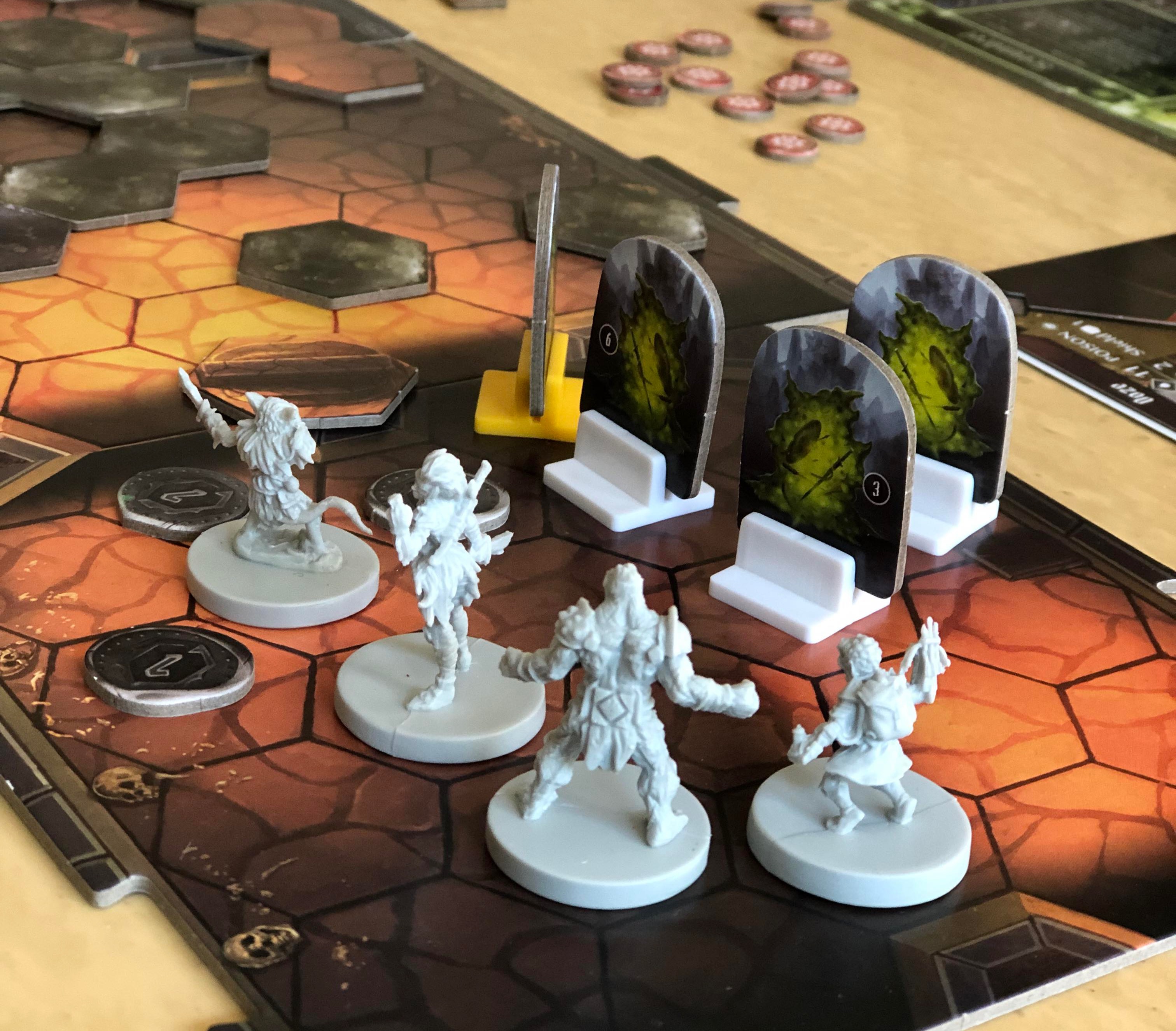Hi!
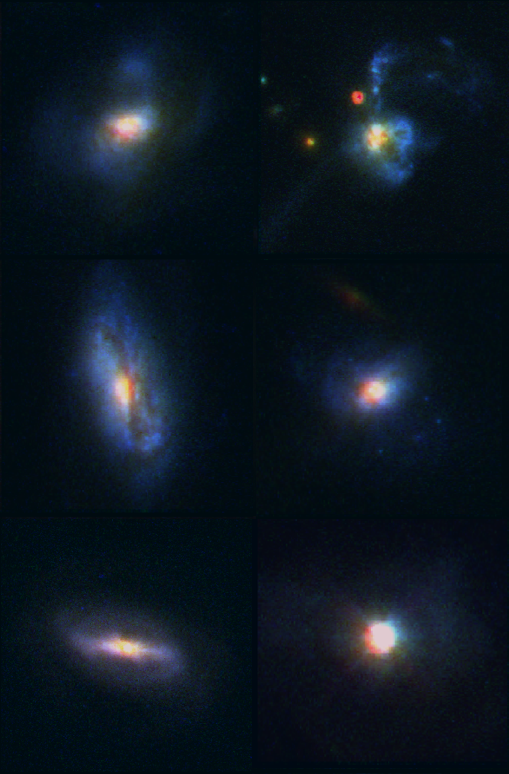 My name is Liza Sazonova. I am a Canadian Rubin Postdoctoral Fellow at the Univesity of Waterloo in Canada.
I work with people across the world to study
how do galaxies like our own Milky Way die.
My name is Liza Sazonova. I am a Canadian Rubin Postdoctoral Fellow at the Univesity of Waterloo in Canada.
I work with people across the world to study
how do galaxies like our own Milky Way die.
In particular, I study how the structure of galaxies changes as they evolve. What happens to spiral galaxies to make them featureless spheroids? How does the structure of stars, gas, and dust change during this process? I use multi-wavelength observations, morphology analysis and machine learning to answer these questions!
Research
Galaxies evolve from blue, star-forming disks to red-and-dead bulge-dominated galaxies. But why do structure and star formation properties change at the same time?
Galaxy structure (stars) are only affected by gravity, while star formation fuel (gas) is much easier to remove by hydrodynamical effects. How do quenching mechanisms give rise to both gravitational and hydrodynamical forces that drive this evolution?
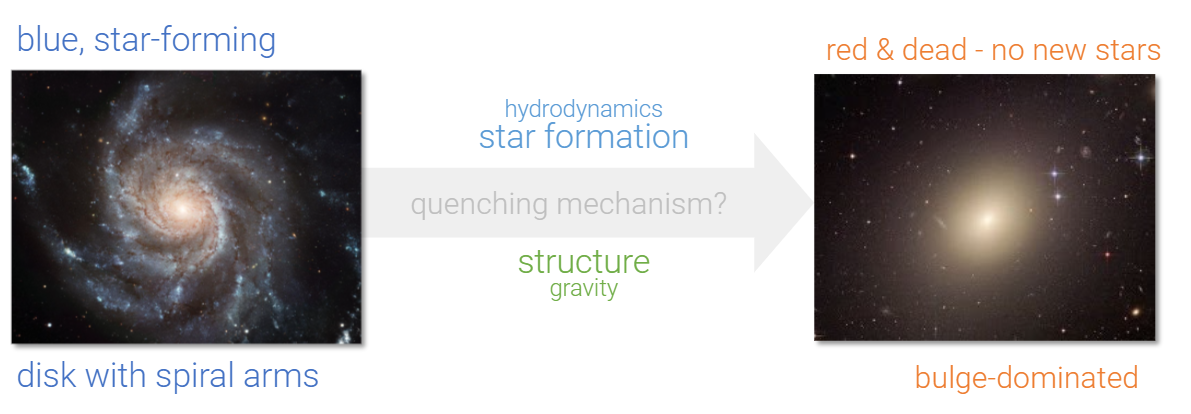
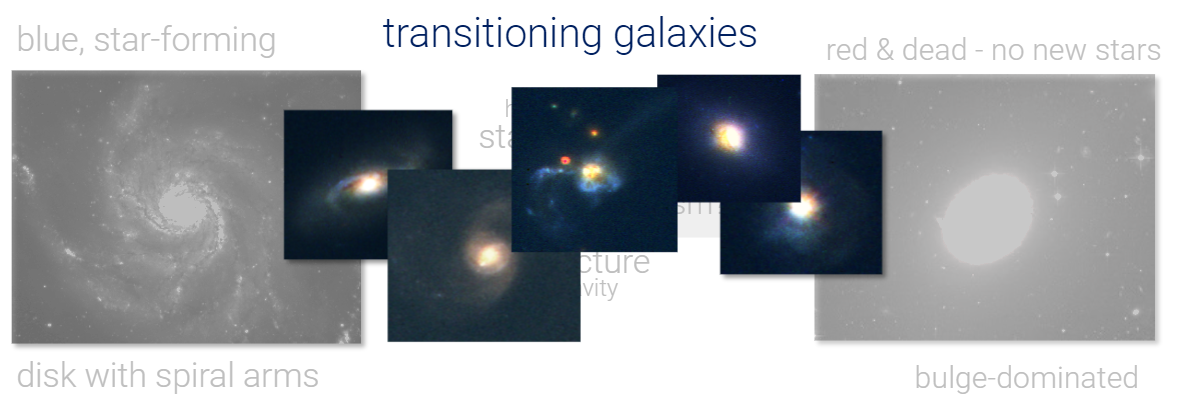
I study the structural evolution of galaxies using morphology analysis, multi-wavelength data, and machine learning. There are a million image processing and data science tools in the software industry that we tend not to use in astronomy and I am always curious to try new ones. After all, if self-driving cars and detect crowds of pedestrians, shouldn't we also be able to detect regular-looking blobs in the sky?
My most recent projects & publications
Compact, bulge-dominated galaxies in z~1.5 clusters
We found that 2 out of 4 high-redshift clusters have many more compact,
bulge-dominated galaxies than the field. These young clusters are
already very efficient at quenching -- and it's not ram pressure stripping!
2020ApJ...899...85S
Hidden disturbances in post-starburst galaxies revealed by HST
We looked at morphology of 26 post-starburst galaxies using HST and SDSS.
Almost 90% were very disturbed in HST imaging, but only 50% in SDSS! These disturbances
are strange dust substructures, rather than obvious merger features.
2021ApJ...919..134S

Unbiased morphology with machine learning
Morphology measurements vary a lot based on instrument depth and resolution.
Using Convolutional Neural Networks and simulated images as a training set,
I want to get rid of this instrumental bias.
Next project!
My recent talks
I love giving talks to a wide range of audiences, from school visits and pub talks to conference lectures. Here are some of my recent talks (chosen by being my favourite or topics being fun). If you know someone who would like to hear more about galaxies and their structure, shoot me an email!| Title | Place | Type | Links | |
|---|---|---|---|---|
| Jun 2023 | Robust measurements of galaxy morphology with LSST | LSST Galaxies Meeting, Paris | Conference talk | Slides |
| May 2023 | The lives and deaths of galaxies | Crazy Canuck, Waterloo, CA | Astronomy on Tap | More KW talks |
| Mar 2023 | Robust measurements of galaxy morphology with LSST | LSST GSC Meeting | Telecon | Video, Slides |
| Nov 2022 | The lives and deaths of galaxies | iTelescope.net | Remote public talk | Video |
| Nov 2022 | Structural evolution of dying galaxies | UWaterloo, CA | Remote seminar | Video |
| Dec 2021 | The need for deep, high-resolution data to study galaxy structure... could be resolved? | Oxford, UK | Seminar | - |
| Oct 2021 | Summary of the IPCC 2021 Report - Physical Basis of Climate Change | Johns Hopkins, USA | Journal club | - |
| Dec 2020 | Introduction to CNNs for astronomy applications | Johns Hopkins, USA | Journal club | - |
| Aug 2019 | The build-up of compact spheroidal galaxies in 1<z<2 clusters | U of Nottingha, UK | Seminar | - |
Outreach
I don't think everyone in the world should be a scientist - there are far more important jobs. From time to time though, we should all remember that night from our childhood when we stood alone in the dark, listening to the gleaming stars and the faint whisper of the endless empty Universe. Amazed, lonely, and scared; wondering - who are we? Where did we come from?
That kid is in all of us, keeping us moving forward. I love reminding others of that distant memory: through public talks, stargazing nights, or even chats on the bus.
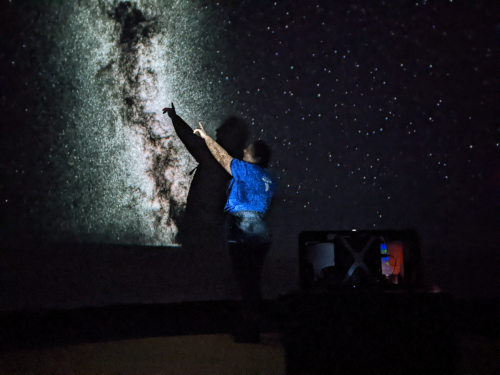
Outreach volunteer
I'm an active outreach volunteer at the Waterloo Centre for Astrophysics. We host Astrobubble planetarium events in local schools and at the University, as well as talks in public libraries, and Astronomy on Tap. Reach out to us if you're in KW!
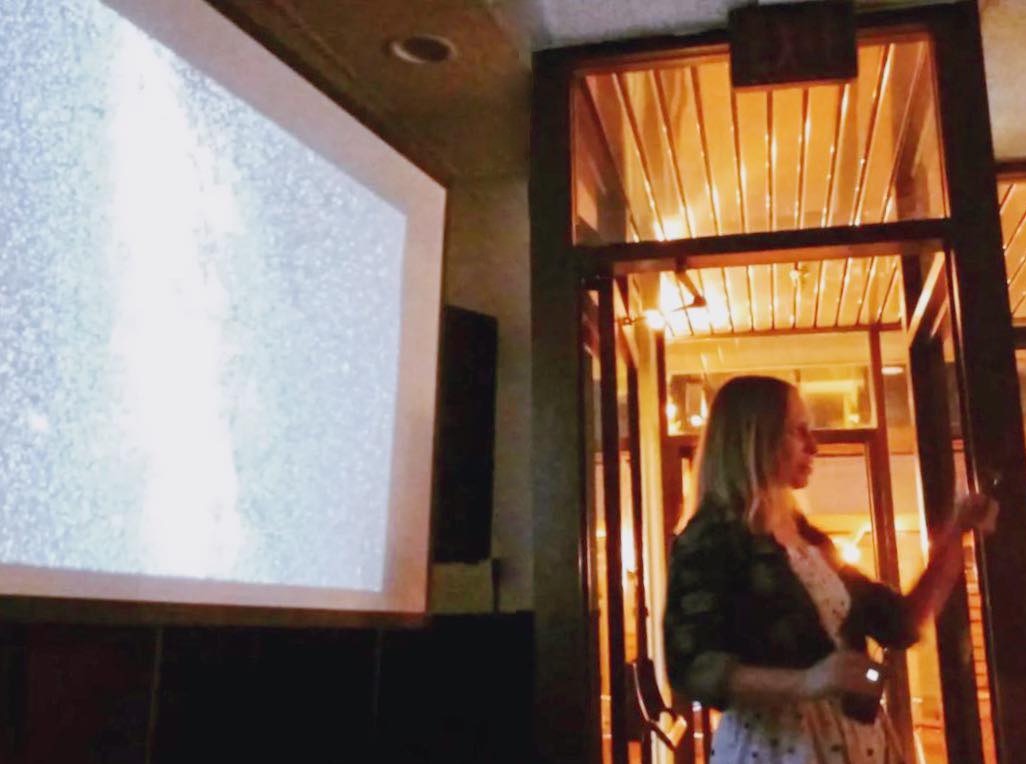
Public talks
I love giving public talks in any settings, from schools, to public venues, to pubs. Here's a grainy picture of me talking about galaxies at an Astronomy on Tap in Waterloo. Message me if you'd like to hear more about space!
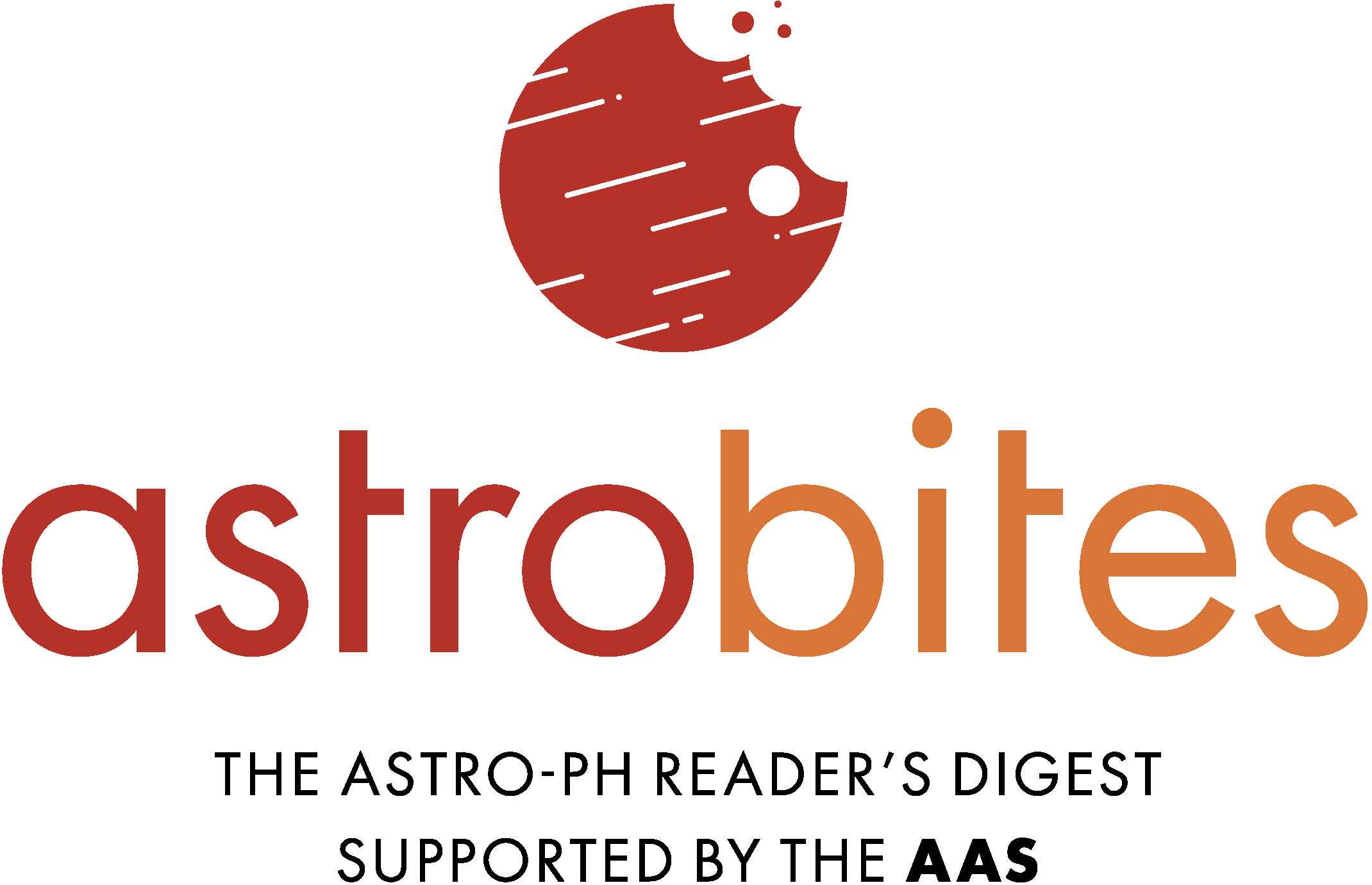
Astrobites
I was a contributing author at Astrobites, a great resource to make modern research accessible. Astrobiters write short and clear blog posts summarizing and explaining recent astronomy papers. Check them out!

I'm a Scientist
I am a regular contributor to I'm a Scientist, Get me out of here! program. Scientists from around the world get to have online chats with UK school students, and answer their questions on a public forum. It is a lot of fun!

Clubhouse
I hosted an Astronomy Q&A room on the ClubHouse platform as part of Science in Russia group (back when ClubHouse was relevant). I think there is a lot of potential in expanding STEM outreach to social media to reach yound adults worldwide!
Something I'm thinking a lot about now: we live in a world surrounded by chaotic data and contradicting narratives. As scientists, we know how to deal with data and how to filter out unreliable information. Most importantly, we've learnt to understand statistics: is this vaccine effective? Is climate change science significant? At the same time, the most we learn about statistics in school (if anything) is just the odds of drawing balls out of a black box. One of my goals in the future is to host a series of outreach talks about practical statistics for adults - or how to survive in the modern world. Reach out if you're interested in collaborating on this!
Academic community work
I believe strongly in building an active and a welcoming community at my workplace. I am SafeZone-trained and my workspace is always open to anyone who might need an ally in any situation. I think academia has a long way to go to break old traditions and structural inequalities to truly be inclusive, but we should definitely work on it!
Current activities

WCA postdoctoral representaitve
I'm a postdoctoral representative at the Waterloo Centre for Astrophysics. Together, we brainstorm new ways to improve our community, and bring them to the table at staff meetings.

Retro Journal Club
I organize a weekly journal club for junior researchers to discuss pre-20th century papers. There's a lot we can learn from lives and work of scientists before us!

Statistics book club
I organize a weekly book club for junior researchers, where we read Practical Statistics for Astronomers - a great book not just for astronomers, but for all, with many real-world examples.

GitHub repo
I make sure all my code, data and publications are open-source and easily accessible. See my GitHub page for my software, and the research section for the data behind my work!

DEI Journal Club
I co-host a Diversity, Equity & Inclusion journal club once a week to discuss papers related to those important issues in a safe environment, including our faculty, staff, and students.
About me
I currently live in Canada, but at heart I'm a nomad. Born in Russia, I've lived in Vietnam, Canada, USA, Sweden, and UK. Here are some things I've learnt I like along the way.
Tap/hover over an image to see more!





